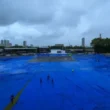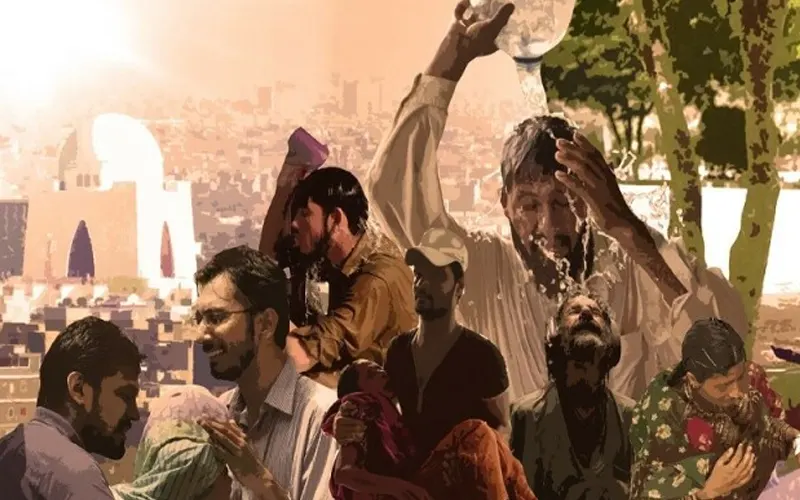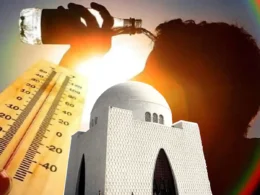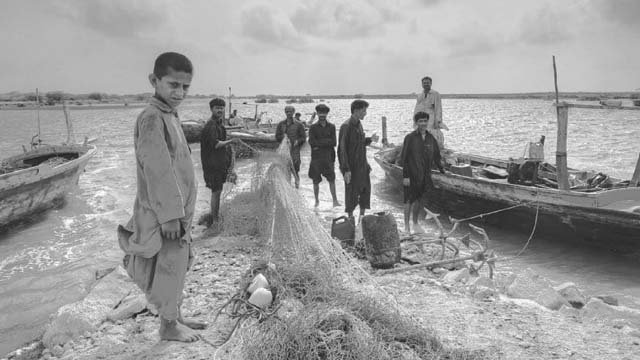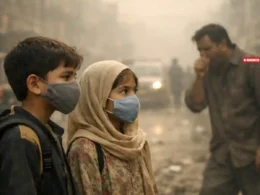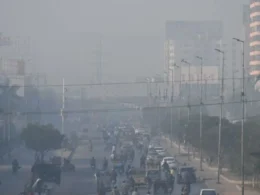In Pakistan, heatwaves are arriving earlier than usual every passing year, still we remain unprepared to tackle the growing impact of heat.
The life of people has become dangerous and suffocating as Karachi suffers relentless heat and suffocating humidity. These rising temperatures seriously threaten the public, particularly children, the elderly, and daily wage workers.
The heat severely disrupts the routine of life even before the peak summer months. People feel constantly fatigued and dehydrated.
Laborers involved in construction work are often exposed to direct sunlight for hours with no access to clean drinking water or shade. This leads to a rise in heat-related illnesses such as dehydration, skin infections, rashes, and even heatstroke.
Hospitals across Sindh reported an alarming increase in such cases. While some major public hospitals have set up facilities to deal with patients with similar illnesses, but still lack the equipment and space to treat hundreds of people.
Other than this, the main and deeper problems lie in the poor urban planning.
Moreover, the authorities do not focus on creating climate-resilient infrastructure. In Karachi, widespread deforestation has stripped the city of natural cooling systems. Trees that once shaded streets have been cut down for construction projects, and no serious effort has been made to replant them. Consequently, the city is filled with heat-absorbing concrete structures and high-traffic areas that exacerbate the heat.
The absence of green spaces, shaded walkways, and breathable urban designs intensifies the “urban heat island” effect. If proper planning is adopted, as planting native trees, using reflective building materials, and creating shaded public paths, cities could naturally lower their temperatures and improve air quality.
Unfortunately, government intervention is minimal. While a few volunteer groups step in during extreme summers, their efforts are too small in scale to meet the needs of large populations. The government must take the initiative by investing in public cooling centers, particularly in densely populated urban areas.
These centers should offer air-conditioned spaces, seating, drinking water, and basic first aid at no cost, potentially saving countless lives during peak heat hours and providing relief to those in need.
The implementation of public awareness campaigns is equally important. A significant portion of the population remains uninformed about the effective measures to follow during the heatwave. Thus, campaigns led by the government across traditional and digital media platforms can help educate citizens regarding the symptoms of heat exhaustion, hydration and medical assistance. Especially in low-income communities, these initiatives are crucial to make information accessible to them.
Moreover, strategic investments should be made by authorities in research and technology to mitigate the impacts of heat waves. A long-term climate resilience can be achieved by developing heat-resistant construction materials and implementing solar-powered cooling solutions.
Where the government’s involvement is necessary, we citizens, individually or collectively, have to play our part too. During the extreme weather, we should avoid non-essential orders or deliveries between peak hours from 12 to 4 PM. This can reduce unnecessary exposure for riders and workers. Another simple act of carrying cool water bottles while stepping out from homes and distributing them among workers across the street is a powerful act of solidarity. In addition to this, local communities can organize plantation initiatives.
In these growing heat temperatures, Pakistan should think of a cohesive unified strategy to combat the threat of heatwaves. A coordinated and well-structured plan for infrastructure, health, public safety, and community support is the need of the hour. Heatwaves are an annual crisis rather than being just an emergency, and without any proactive planning and shared responsibility, we’ll not be able to tackle this.

